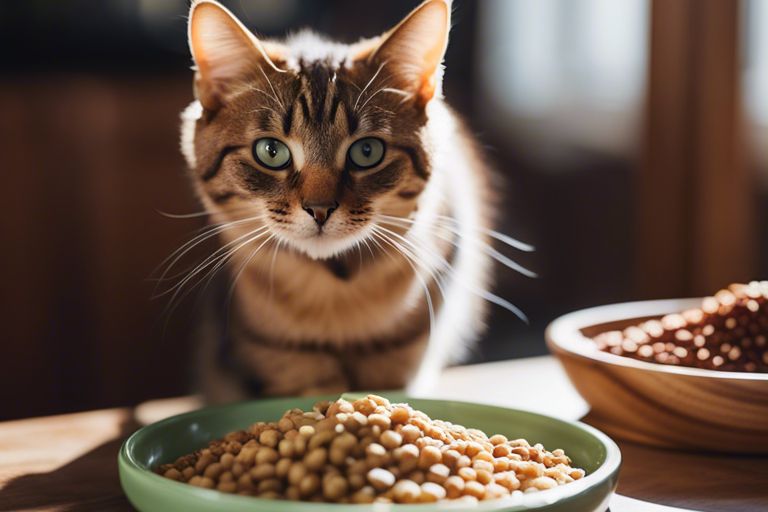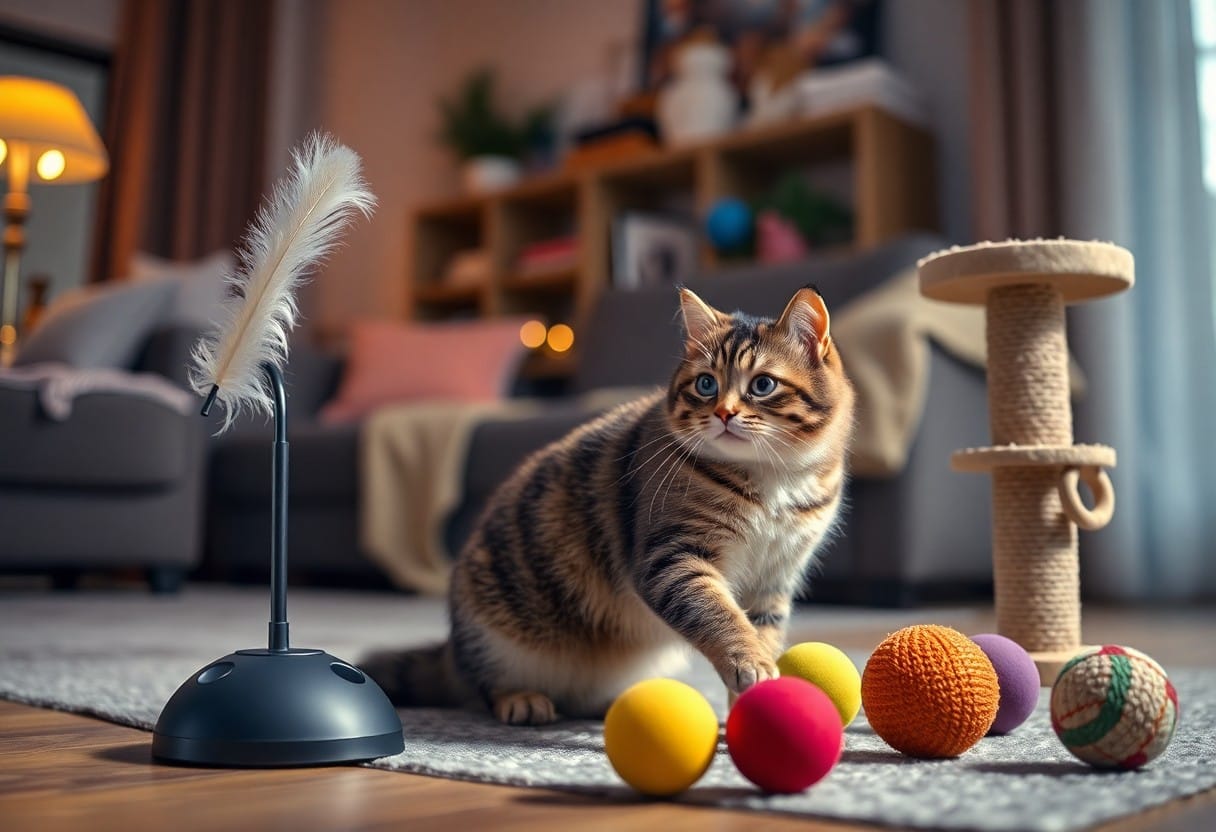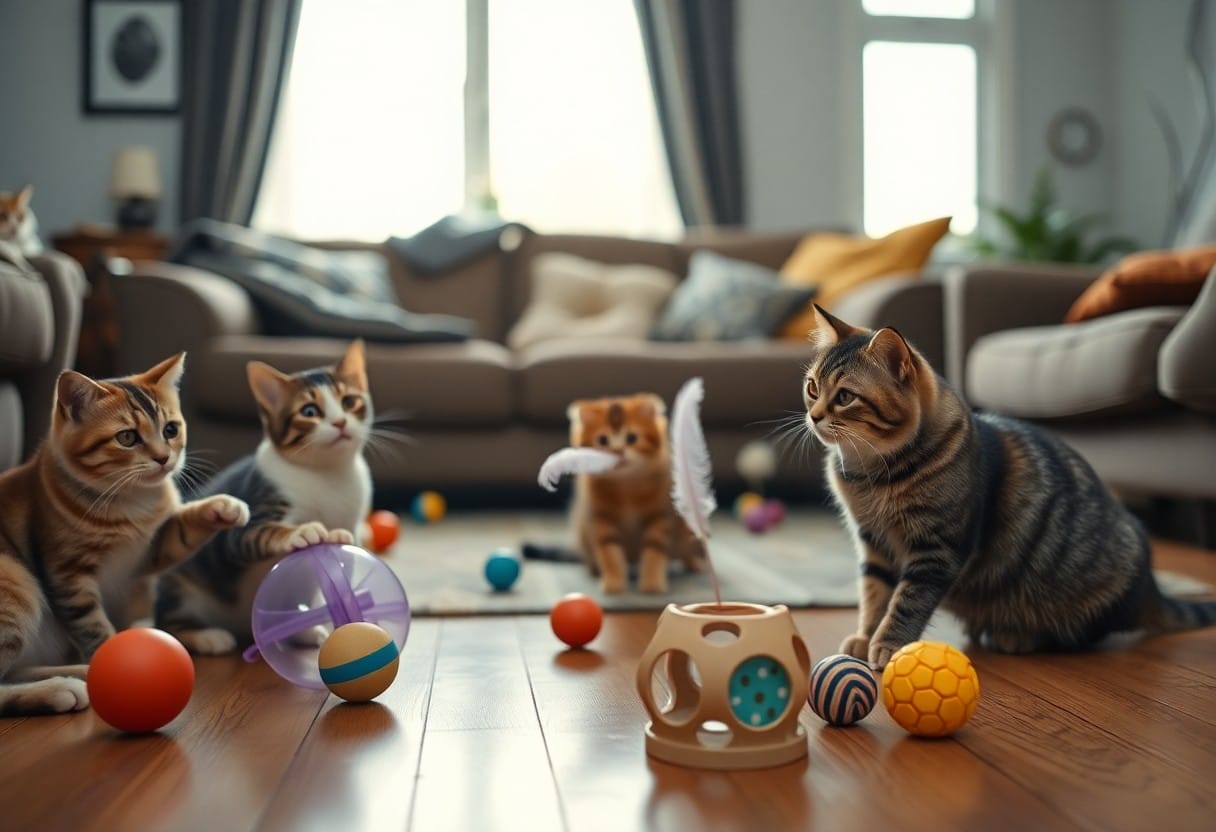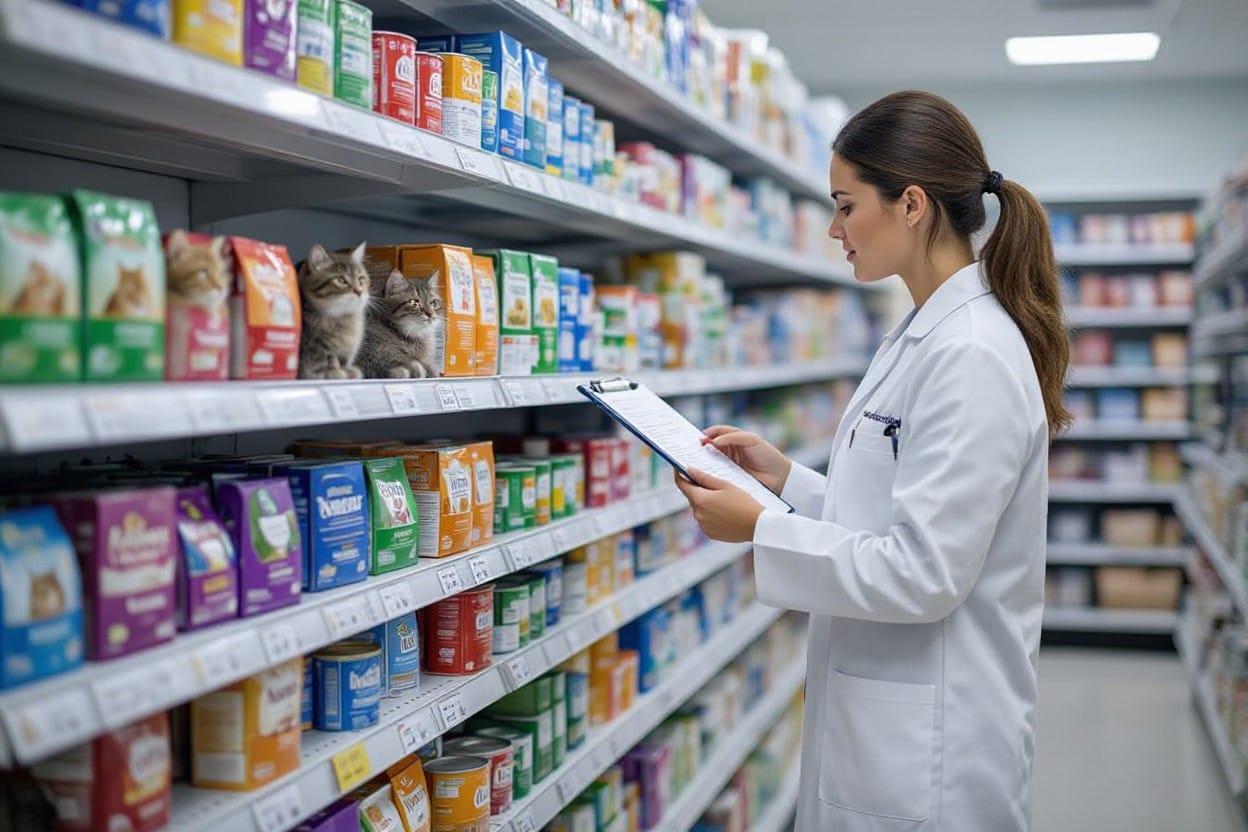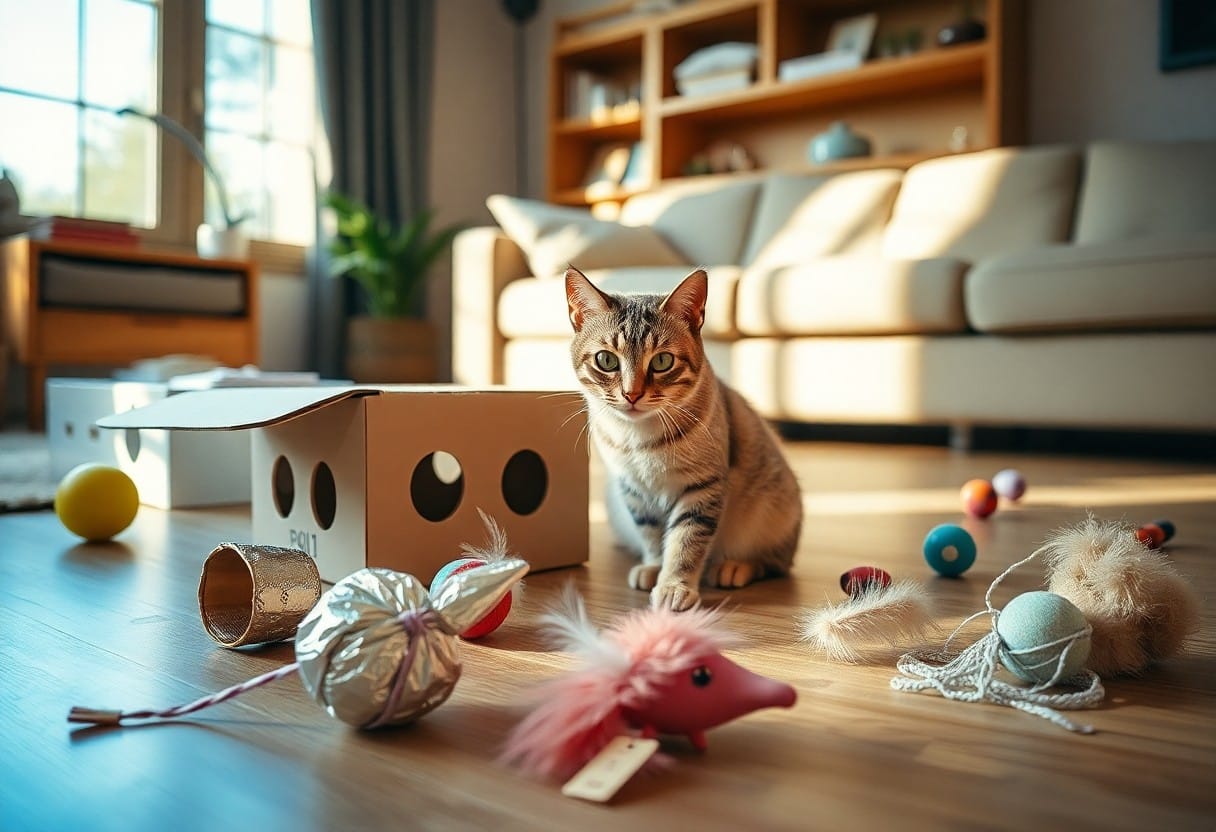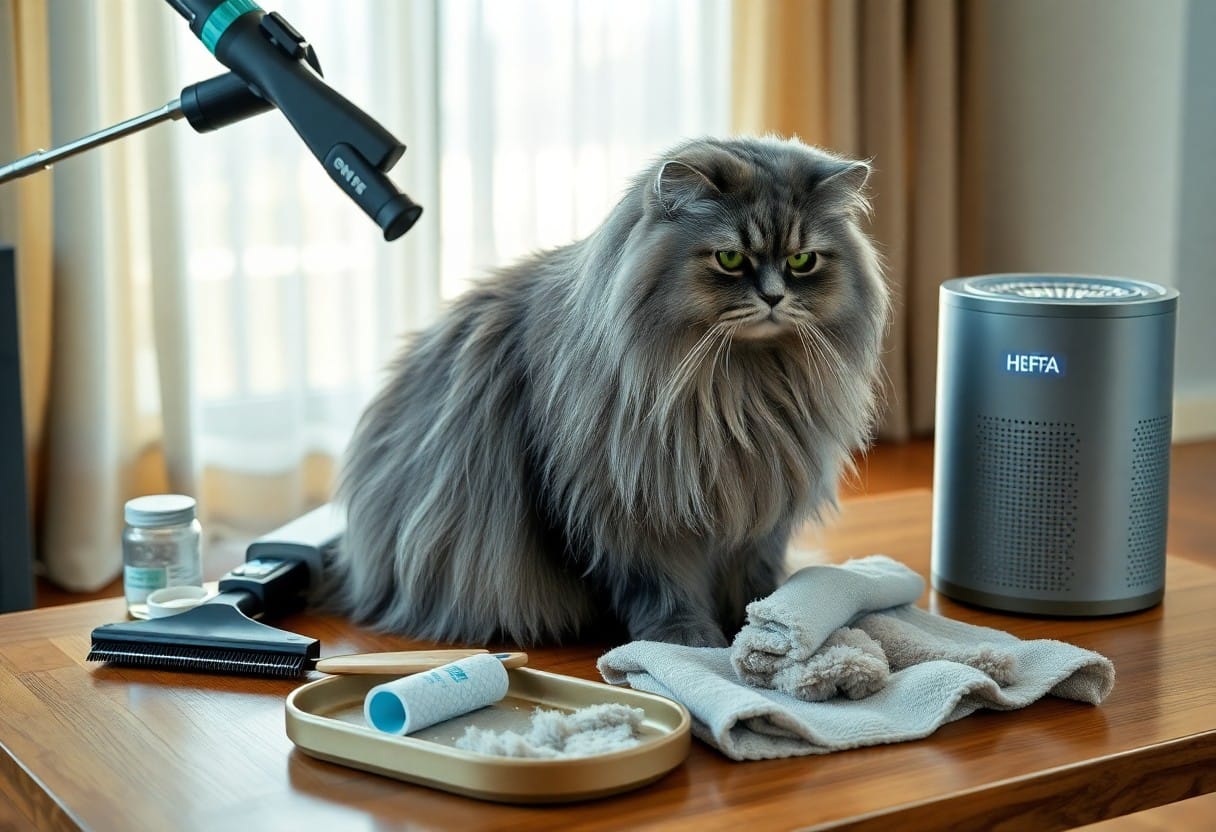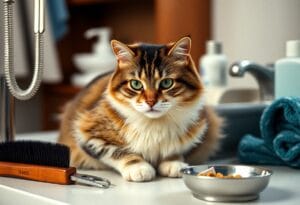You may think you know how to feed your feline friend, but do you truly understand your cat’s unique nutritional requirements? In this comprehensive guide, we will research into the specific needs of your cat, from important nutrients to the importance of proper hydration. By the end of this breakdown, you will have a deeper understanding of what it takes to keep your cat happy and healthy through a well-balanced diet.
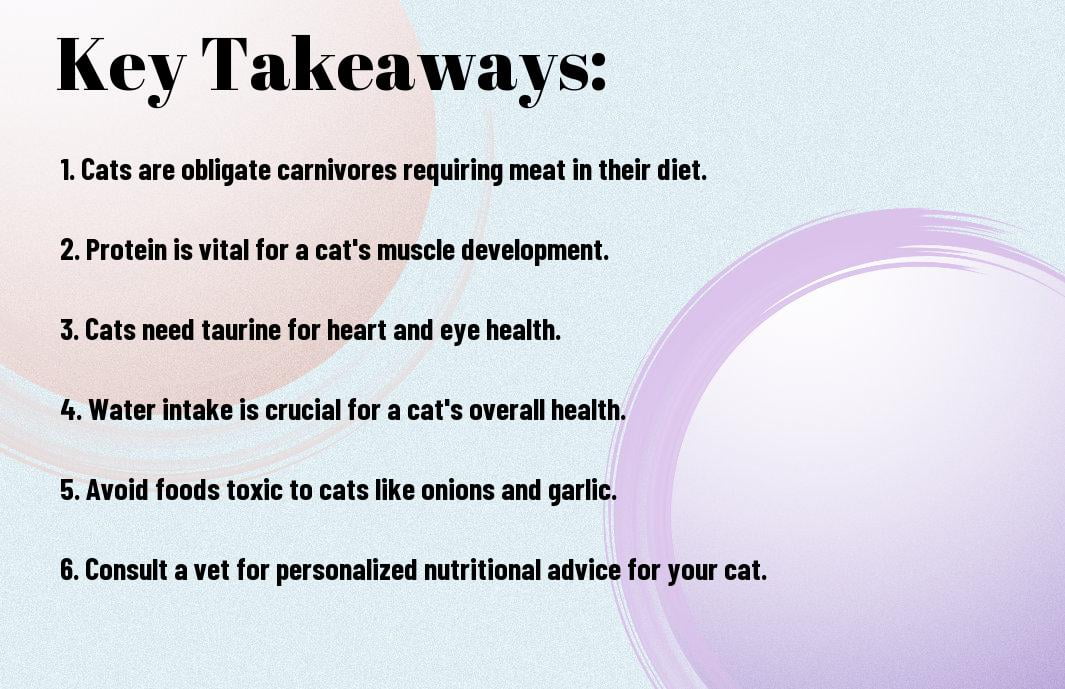
Basic Nutritional Requirements of Cats
Understanding Macronutrients
Some of the most important components of your cat’s diet are macronutrients, which include proteins, fats, and carbohydrates. Proteins are necessary for cats as they provide the necessary amino acids for functions like muscle growth and tissue repair. Fats are a concentrated source of energy that also help with nutrient absorption and maintaining healthy skin and coat. Carbohydrates, although not a dietary necessity for cats, can still provide energy and fiber benefits when included in their diet.
The Role of Micronutrients
An important aspect of your cat’s nutritional needs includes micronutrients such as vitamins and minerals. Cats require a variety of vitamins like Vitamin A for vision and Vitamin D for calcium absorption. Minerals like calcium, phosphorus, and potassium are crucial for maintaining strong bones, regulating fluid balance, and supporting nerve function. Ensuring your cat’s diet includes the right balance of these micronutrients is necessary for their overall health and well-being.
Cats are obligate carnivores, meaning their diet must primarily consist of meat to meet their nutritional requirements. This is because they have specific dietary needs that can only be fulfilled through animal-based proteins. In the wild, cats would consume whole prey animals which provide them with the necessary nutrients they need to thrive.
Macronutrients, such as proteins and fats, play a crucial role in your cat’s diet by providing energy and supporting various bodily functions. Proteins are particularly important for cats as they require higher levels of protein compared to many other animals. Fats, on the other hand, are necessary for energy storage and providing necessary fatty acids that cats cannot produce on their own.
Life Stage Nutritional Needs
Kitten Nutrition for Growth and Development
Keep in mind that kittens have specific nutritional needs for optimal growth and development. They require a diet that is rich in protein, vital fatty acids, vitamins, and minerals. It is crucial to choose a high-quality cat food specially formulated for kittens to support their rapid growth during this stage of life.
Adult Cat Maintenance
Adult cats have different nutritional requirements compared to kittens. A balanced diet with the right mix of protein, fats, carbohydrates, vitamins, and minerals is vital for maintaining their overall health and well-being. Look for cat food labeled “complete and balanced” for adult cats to ensure they are getting all the nutrients they need.
Adult cats also need to have access to fresh water at all times to stay hydrated and support their renal function. Monitoring their weight and adjusting their food portions accordingly can help prevent obesity and other health issues.
Senior Cat Care and Nutrient Adjustments
Growth
As cats age, their nutritional needs change again. Senior cats may require fewer calories to prevent weight gain and certain nutrients to support aging joints and organs. Look for cat foods designed specifically for senior cats, which often include ingredients like glucosamine and chondroitin for joint health and antioxidants to support their immune system.
Understanding the nutritional needs of your cat at different life stages is crucial for ensuring they lead a healthy and happy life. Consulting with your veterinarian for personalized recommendations based on your cat’s age, activity level, and health status can help you provide the best nutrition for your feline companion.
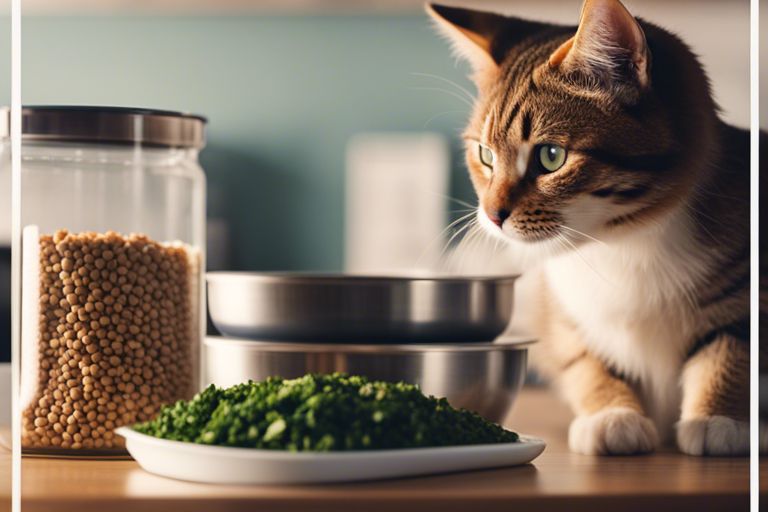
The Impact of Diet on Feline Health
Weight Management and Obesity Prevention
Your feline friend’s diet plays a crucial role in managing their weight and preventing obesity. Just like in humans, obesity in cats can lead to various health problems, including diabetes, joint issues, and a decreased lifespan. To maintain an ideal weight for your cat, it’s crucial to provide a balanced diet with the right amount of calories to support their energy needs while preventing excess weight gain.
Managing Health Conditions Through Diet
Feline health conditions such as kidney disease, diabetes, and allergies can often be managed or even improved through a carefully tailored diet. With the guidance of your veterinarian, specific diets can be prescribed to address your cat’s unique health requirements. These special diets may contain specific levels of protein, carbohydrates, or other nutrients to support their overall well-being and manage the specific condition.
This targeted approach to nutrition can have a significant impact on your cat’s quality of life and long-term health outcomes. By feeding your feline companion the right diet, you can effectively support their specific health needs and ensure they thrive despite any underlying medical conditions.
Decoding Cat Food Labels
Not all cat foods are created equal, and understanding how to decode the labels on cat food packaging can help you make informed decisions when choosing the best diet for your feline friend.
Understanding Ingredient Lists
On cat food labels, ingredients are listed in descending order by weight. This means that the first few ingredients listed make up the bulk of the food. Look for high-quality protein sources like meat, poultry, or fish as the first ingredient, and avoid foods that list fillers, by-products, or artificial additives at the top of the list.
Identifying Nutritional Adequacy Statements
Any cat food that claims to be complete and balanced should have a statement from the Association of American Feed Control Officials (AAFCO) on the packaging. This statement ensures that the food meets the minimum nutritional requirements for cats at a specific life stage, such as growth, maintenance, or all life stages.
It is important to look for specific life stage mentions on the nutritional adequacy statement, as a food suitable for kittens may not provide all the necessary nutrients for adult cats, and vice versa.
Learning to Recognize Marketing vs. Nutritional Facts
Nutritional claims on cat food labels can sometimes be misleading, as marketing tactics are often used to attract consumers. Look past flashy labels and focus on the nutritional facts and ingredient list to ensure that the food meets your cat’s dietary needs. Phrases like “natural,” “grain-free,” or “holistic” do not necessarily guarantee a high-quality diet for your cat.
Food packaging may also feature images of fresh ingredients or promote trendy dietary concepts, but it’s crucial to turn the package over and examine the actual nutritional content to make an informed choice for your cat’s health.
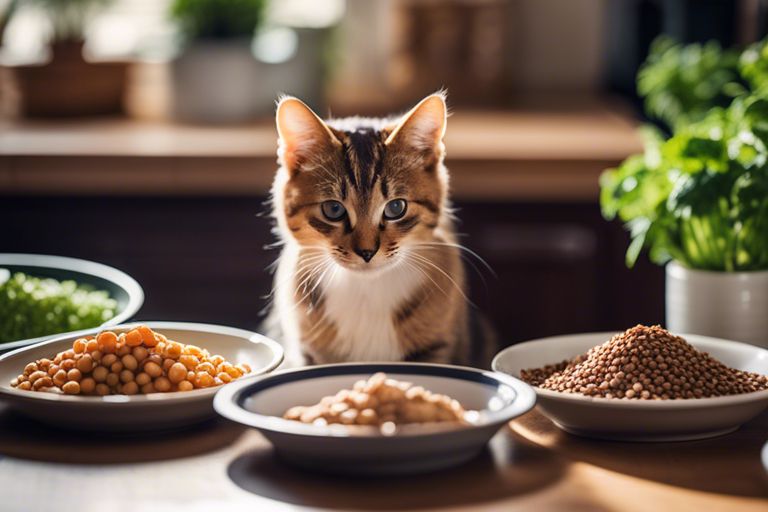
Wet Food vs. Dry Food
The Pros and Cons of Wet Food
Pros
| Pros | Cons |
| High moisture content helps with hydration | Shorter shelf life after opening |
| More palatable for picky eaters | May be more expensive than dry food |
| Less processed and more natural | Can be messier and harder to store |
The Pros and Cons of Dry Food
With
Dry food is convenient and easy to store, with a longer shelf life compared to wet food. It is also more cost-effective and can help maintain dental health by promoting chewing and reducing tartar buildup. However, dry food may not provide as much hydration as wet food and can be less palatable for some cats.
The Pros and Cons of Dry Food
| Pros | Cons |
| Convenient and easy to store | May not provide enough hydration |
| Longer shelf life | Less palatable for some cats |
| Cost-effective | Less natural and more processed |
Determining the Best Choice for Your Cat
It
When deciding between wet and dry food for your cat, consider their individual needs and preferences. Some cats may benefit from a combination of both wet and dry food to meet their nutritional requirements. Consulting with your veterinarian can help you determine the best diet for your feline companion.
Any
Factors such as your cat’s age, activity level, and any underlying health conditions should also be taken into consideration when choosing between wet and dry food. Observing your cat’s response to each type of food can also help you gauge which option they prefer and digest better. Do not forget, the best choice is the one that keeps your cat healthy and happy.
Special Diets and Considerations
Despite cats’ reputation as notoriously picky eaters, understanding their nutritional needs is crucial in choosing the right food for your feline companion. Special diets may be necessary for cats with specific health issues or dietary requirements. It’s vital to be aware of these specialized diets and considerations to ensure your cat’s well-being.
Allergies and Food Intolerances
The importance of recognizing and addressing allergies and food intolerances in cats cannot be understated. Symptoms may include skin issues, digestive problems, or even behavioral changes. If you suspect your cat has any dietary sensitivities, consult with your veterinarian to determine the best course of action.
Raw Diets and Homemade Food
Food prepared at home or raw diets have gained popularity among some cat owners seeking to provide their pets with a more natural and less processed diet. However, it’s crucial to understand the potential risks and benefits associated with these feeding options before making any changes to your cat’s diet.
It’s important to note that preparing balanced meals at home requires meticulous attention to detail to ensure that your cat receives all the necessary nutrients. Raw diets, while they can be nutritionally complete if properly formulated, may also pose risks of foodborne illnesses if not handled correctly.
Supplements and Functional Foods
An vital aspect of cat nutrition is considering supplements and functional foods to support your cat’s overall health. These may include vitamins, minerals, omega-3 fatty acids, and various functional ingredients tailored to address specific health concerns such as joint health, urinary tract support, or skin and coat health.
Functional foods are formulated to offer additional benefits beyond basic nutrition. They may contain ingredients like probiotics, antioxidants, or botanicals that can support various aspects of your cat’s health and well-being. When considering supplements or functional foods for your cat, always consult with your veterinarian to ensure they are safe and appropriate for your cat’s individual needs.
Feeding Practices and Behavior
Establishing Healthy Feeding Routines
After bringing a new cat into your home, it is important to establish a healthy feeding routine to ensure they receive the appropriate nutrition at the right times. This routine should consist of feeding your cat at the same times each day and providing a balanced diet suitable for their life stage and health needs. Consistency is key in maintaining a healthy feeding schedule that your cat can rely on.
Understanding Feeding Behaviors and Issues
Healthy feeding behaviors are crucial for your cat’s overall well-being. Some cats may exhibit issues such as overeating, food aggression, or picky eating habits. It is important to address any feeding issues promptly to prevent potential health problems. Cats are obligate carnivores, meaning their diet should primarily consist of animal protein, and they may have specific preferences when it comes to flavors and textures.
Behavioral issues related to feeding can also stem from stress, anxiety, or past experiences. If your cat is displaying concerning feeding behaviors, it is recommended to consult with a veterinarian or a feline behavior specialist to address these issues effectively.
The Human-Cat Bond Through Feeding
An important aspect of the human-cat bond is established through feeding practices. Cats are known to form strong associations with the individuals who provide them with food and care. By being the source of their meals, you can build trust and strengthen your relationship with your cat. This bonding experience can enhance your emotional connection and create a sense of security for your feline companion.
This bond is not only beneficial for your cat’s emotional well-being but also for your own. The act of feeding your cat can be a rewarding and fulfilling experience that deepens your understanding of their needs and preferences. It allows you to engage in a daily ritual that fosters love and companionship between you and your feline friend.
To wrap up
Ultimately, understanding your cat’s nutritional needs is crucial in providing them with a healthy and balanced diet. By breaking down the key components of a cat’s diet, including protein, fats, carbohydrates, vitamins, and minerals, you can ensure that your feline friend is thriving and living a long, happy life. Remember to consult with your veterinarian to tailor your cat’s diet to their specific needs and ensure they are getting all the important nutrients they require.
All things considered, a well-balanced diet is important for maintaining your cat’s overall health and well-being. By being knowledgeable about your cat’s nutritional needs and making informed choices when selecting their food, you are taking an important step towards providing them with a high-quality diet that meets all their requirements. Keep in mind that proper nutrition plays a significant role in your cat’s longevity and quality of life, so investing time and effort into understanding and meeting their dietary needs is well worth it.
FAQ
Q: Why is it important to understand my cat’s nutritional needs?
A: Understanding your cat’s nutritional needs is crucial for ensuring their overall health and well-being. A balanced diet tailored to your cat’s specific requirements can help prevent common health issues and promote longevity.
Q: What are the key nutrients that cats need in their diet?
A: Cats require proteins, fats, vitamins, minerals, and water in their diet to thrive. Proteins are particularly important for cats as they are obligate carnivores and need high-quality animal-based protein sources.
Q: How much should I feed my cat?
A: The amount of food your cat needs can vary based on factors such as age, weight, activity level, and overall health. It’s best to consult with your veterinarian to determine the appropriate portion size for your cat.
Q: Are there any specific dietary requirements for senior cats?
A: Senior cats may have different nutritional needs compared to younger cats. They may benefit from diets that are lower in calories but higher in protein to support muscle mass maintenance and joint health.
Q: How can I tell if my cat is not getting the right nutrition?
A: Signs of inadequate nutrition in cats may include poor coat quality, lethargy, weight loss, gastrointestinal issues, and dental problems. If you suspect that your cat is not getting the right nutrition, consult with your veterinarian for guidance.
